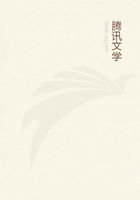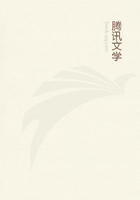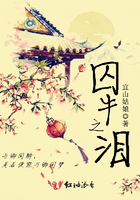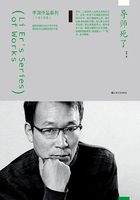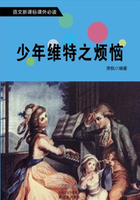SOCRATES: And would you hold that the very good were the very wise, and the very evil very foolish? Would that be your view?
HERMOGENES: It would.
SOCRATES: But if Protagoras is right, and the truth is that things are as they appear to any one, how can some of us be wise and some of us foolish?
HERMOGENES: Impossible.
SOCRATES: And if, on the other hand, wisdom and folly are really distinguishable, you will allow, I think, that the assertion of Protagoras can hardly be correct. For if what appears to each man is true to him, one man cannot in reality be wiser than another.
HERMOGENES: He cannot.
SOCRATES: Nor will you be disposed to say with Euthydemus, that all things equally belong to all men at the same moment and always; for neither on his view can there be some good and others bad, if virtue and vice are always equally to be attributed to all.
HERMOGENES: There cannot.
SOCRATES: But if neither is right, and things are not relative to individuals, and all things do not equally belong to all at the same moment and always, they must be supposed to have their own proper and permanent essence: they are not in relation to us, or influenced by us, fluctuating according to our fancy, but they are independent, and maintain to their own essence the relation prescribed by nature.
HERMOGENES: I think, Socrates, that you have said the truth.
SOCRATES: Does what I am saying apply only to the things themselves, or equally to the actions which proceed from them? Are not actions also a class of being?
HERMOGENES: Yes, the actions are real as well as the things.
SOCRATES: Then the actions also are done according to their proper nature, and not according to our opinion of them? In cutting, for example, we do not cut as we please, and with any chance instrument; but we cut with the proper instrument only, and according to the natural process of cutting; and the natural process is right and will succeed, but any other will fail and be of no use at all.
HERMOGENES: I should say that the natural way is the right way.
SOCRATES: Again, in burning, not every way is the right way; but the right way is the natural way, and the right instrument the natural instrument.
HERMOGENES: True.
SOCRATES: And this holds good of all actions?
HERMOGENES: Yes.
SOCRATES: And speech is a kind of action?
HERMOGENES: True.
SOCRATES: And will a man speak correctly who speaks as he pleases? Will not the successful speaker rather be he who speaks in the natural way of speaking, and as things ought to be spoken, and with the natural instrument? Any other mode of speaking will result in error and failure.
HERMOGENES: I quite agree with you.
SOCRATES: And is not naming a part of speaking? for in giving names men speak.
HERMOGENES: That is true.
SOCRATES: And if speaking is a sort of action and has a relation to acts, is not naming also a sort of action?
HERMOGENES: True.
SOCRATES: And we saw that actions were not relative to ourselves, but had a special nature of their own?
HERMOGENES: Precisely.
SOCRATES: Then the argument would lead us to infer that names ought to be given according to a natural process, and with a proper instrument, and not at our pleasure: in this and no other way shall we name with success.
HERMOGENES: I agree.
SOCRATES: But again, that which has to be cut has to be cut with something?
HERMOGENES: Yes.
SOCRATES: And that which has to be woven or pierced has to be woven or pierced with something?
HERMOGENES: Certainly.
SOCRATES: And that which has to be named has to be named with something?
HERMOGENES: True.
SOCRATES: What is that with which we pierce?
HERMOGENES: An awl.
SOCRATES: And with which we weave?
HERMOGENES: A shuttle.
SOCRATES: And with which we name?
HERMOGENES: A name.
SOCRATES: Very good: then a name is an instrument?
HERMOGENES: Certainly.
SOCRATES: Suppose that I ask, 'What sort of instrument is a shuttle?' And you answer, 'A weaving instrument.'
HERMOGENES: Well.
SOCRATES: And I ask again, 'What do we do when we weave?'--The answer is, that we separate or disengage the warp from the woof.
HERMOGENES: Very true.
SOCRATES: And may not a similar description be given of an awl, and of instruments in general?
HERMOGENES: To be sure.
SOCRATES: And now suppose that I ask a similar question about names: will you answer me? Regarding the name as an instrument, what do we do when we name?
HERMOGENES: I cannot say.
SOCRATES: Do we not give information to one another, and distinguish things according to their natures?
HERMOGENES: Certainly we do.
SOCRATES: Then a name is an instrument of teaching and of distinguishing natures, as the shuttle is of distinguishing the threads of the web.
HERMOGENES: Yes.
SOCRATES: And the shuttle is the instrument of the weaver?
HERMOGENES: Assuredly.
SOCRATES: Then the weaver will use the shuttle well--and well means like a weaver? and the teacher will use the name well--and well means like a teacher?
HERMOGENES: Yes.
SOCRATES: And when the weaver uses the shuttle, whose work will he be using well?
HERMOGENES: That of the carpenter.
SOCRATES: And is every man a carpenter, or the skilled only?
HERMOGENES: Only the skilled.
SOCRATES: And when the piercer uses the awl, whose work will he be using well?
HERMOGENES: That of the smith.
SOCRATES: And is every man a smith, or only the skilled?
HERMOGENES: The skilled only.
SOCRATES: And when the teacher uses the name, whose work will he be using?
HERMOGENES: There again I am puzzled.
SOCRATES: Cannot you at least say who gives us the names which we use?
HERMOGENES: Indeed I cannot.
SOCRATES: Does not the law seem to you to give us them?
HERMOGENES: Yes, I suppose so.
SOCRATES: Then the teacher, when he gives us a name, uses the work of the legislator?
HERMOGENES: I agree.
SOCRATES: And is every man a legislator, or the skilled only?
HERMOGENES: The skilled only.
SOCRATES: Then, Hermogenes, not every man is able to give a name, but only a maker of names; and this is the legislator, who of all skilled artisans in the world is the rarest.
HERMOGENES: True.

